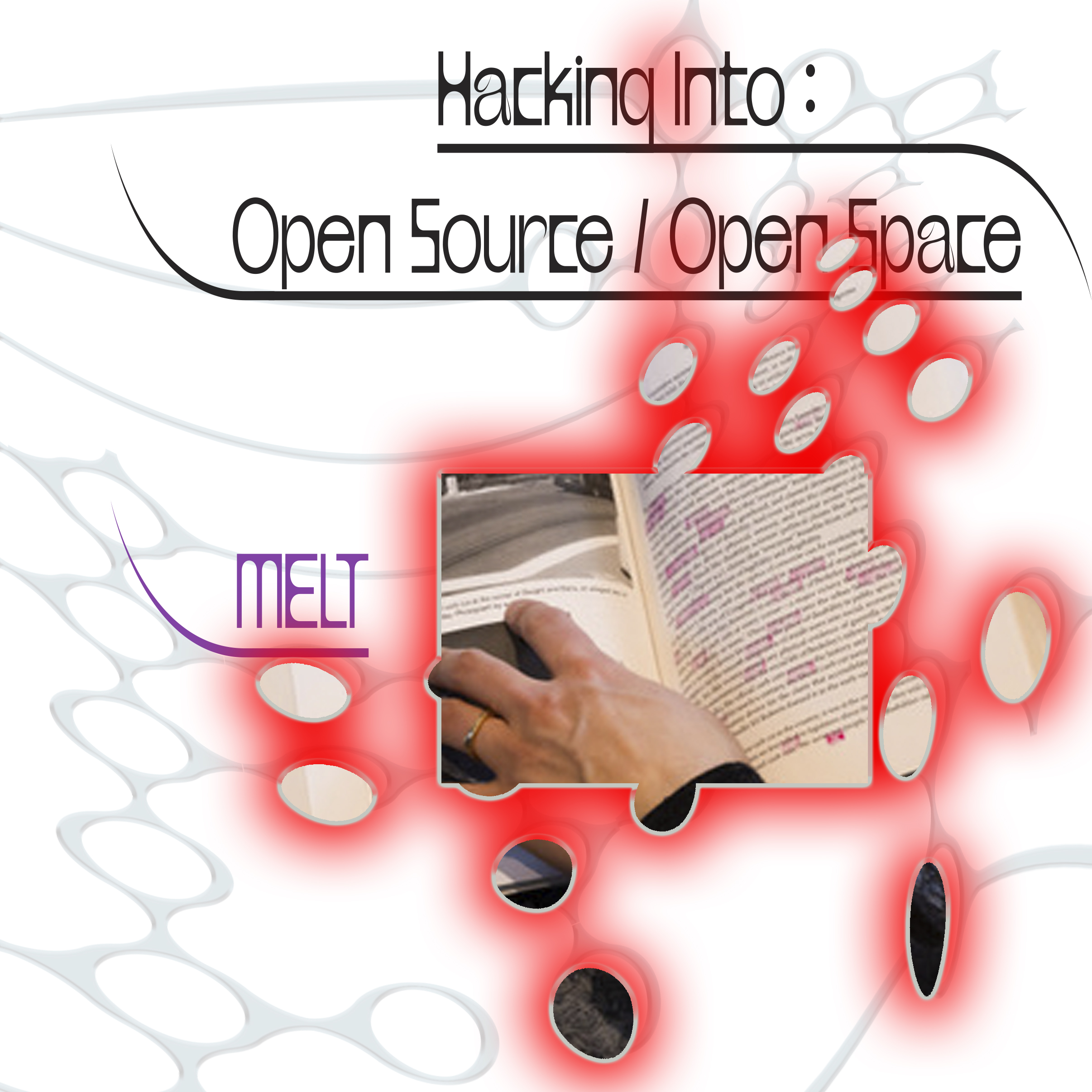Hacking Into Open Source and Open Space with MELT
| Hacking Into Open Source and Open Space with MELT | |
|---|---|
| Name | Hacking Into Open Source / Open Space with MELT |
| Location | De Bonte Zwaan |
| Date | 2022/07/18-2022/07/22 |
| Time | 10:00-18:00 |
| PeopleOrganisations | MELT |
| Type | HDSA2022 |
| Web | Yes |
| No | |
Many technologies facilitating accessibility such as automated captions are built on extractivist data practices and hosted by technical giants. How can we move towards a point where we can choose our technological dependencies (because non extractive accessible tools exist) - intervene into existing systems - and build otherwise technologies of intersectional disability access? Starting from the lived experiences of HDSA peers, we will identify when and how on and offline spaces become accessible or inaccessible to us, what the ecological implications of these spaces are, and which alternatives we can imagine.
Part of our workshop will include a speculative design prompt to keep methods and outcomes that can be dreamt up as open as possible. Every remote group will agree on one access need (such as automated captions) and one space (such as a video conferencing tool) as a locus of intervention. In this workshop we take up 'hacking' alongside Remi M. Yergeau's conceptualising of it that "Bodies are not for hacking; Bigotry is". Possible results could be: an anti-doomscroll browser plugin reminding you of breaks and bandwidth; or an app that helps you to pre-plan for what you might need to bring with you to make spaces more accessible (like noise-canceling headphones, tampons, stim toys, a journal, snacks). At the end of the workshop each of the groups will share their project and we will leave HDSA with a toolbox full of anti-ableist possibilities.
Image Description: Grid-like structure with red glow and the words Hacking Into Open Source / Open Space and MELT. In the center a rectangular image showing a white person’s hand points at a curb cut which is a photograph inside of the book Building Access: Universal Design and the Politics of Disability by Aimi Hamraie within the chapter ’Sloped Technoscience’. The book is atop a rug that MELT wove with friends, the rug itself is fluffy and has a very large hand stitched into its warp and weft.
~About MELT~
MELT (Ren Loren Britton & Isabel Paehr) study and experiment with shape-shifting processes as they meet technologies, sensory media and pedagogies in a warming world. Meltionary (derived from "dictionary"), is a growing collection of arts-design-research engagements that cooks up questions around material transformations alongside impulses from trans* feminism and Disability Justice. Melting as a kaleidoscope like phenomena touches upon multiple topics at once: climate change, the potential for political reformulations, change over time and material transformation. Our node is hosted at Commo: http://commo-berlin.de. Commo is a space is run by queer, trans* and autistic people and can comfortably host a group of up to 15 people. We joyfully invite trans* and disabled people to participate – in-person and online participation are possible.
Our nodes’ motivation is to research, share and activate otherwise modes of connecting built on knowledges already present. Crip knowledges of how to stay connected while centering care became needed by non disabled audiences in 2020. While some forms of access were granted as nondisableds needed them (such as working from home), others remain unimaginable. Within these contradictions, what then are anti-assimilationist, accessible and trans* approaches to connecting otherwise? How can we move towards a point where we can choose our technological dependencies (because non extractive accessible tools exist) - intervene into existing systems - and build otherwise technologies of intersectional disability access? Our ethos of facilitating this Summer Academy begins from centering collective accessibility -- we work with collective conditions that help to establish ways of being together that center care in our node. Breaks, questions, non technical expertise and dancing will be celebrated.
